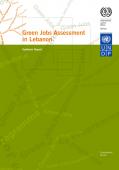
The study comprises four assessments in the sectors energy, building and construction, agriculture and waste management. Provided is a general overview of the sectors, the related policies and legislations and the available and planned financing and investments. Furthermore, the assessments allowed estimating the number of potential green jobs that can be created if green policies relevant to the different sectors are implemented.
The publication is a result of the February 2013 workshop organised by the Women's Environment and Development Organization (WEDO) partners LIFE and GENANET, together with the German Ministry of Environment, in Berlin. The aim of the workshop was to discuss how women’s unpaid work and care economy can be incorporated into sustainable development to achieve gender justice. Different voices and perspectives, from scholars and activists from the global North and South, discussed the growing concern about the emergent terminology of “green economy” in development agendas that ignore its social and environment dimensions.
The market for environmental services is substantial and growing. This policy brief argues that if well managed, liberalisation of trade in environmental services can provide substantial benefits to the private sector as well as the general public.
The paper clarifies that this would be achieved through enhanced market opportunities, improved health and environmental sustainability, particularly in developing countries.
Findings encompass:
Export restrictions are implemented nowadays with the aim of achieving a number of goals, such as food security, industrial development, environmental protection and natural resource conservation. Nevertheless, the current paper brings about a rethinking of the needs and policy objectives behind such measures.
The document presents the following findings:
- in most cases, export restrictions are implemented as one element of a larger resource management strategy
- most restrictions have been imposed by LDCs and developing countries, which account for a high proportion of natural resources produced worldwide
- rules under the WTO governing the use of export restrictions are less developed than those on the import side
- in some cases, export restrictions have served a role in reducing incentives to produce, and have sometimes exacerbated price spikes and volatility on the global markets that they sought to respond to
The authors indicate that countries may wish in the future to multilaterally negotiate better-adapted disciplines and policies, yet they underline these considerations:
This article considers how green growth might move from religion to reality. We make three straightforward arguments: first, that green growth will require a systems transformation; second, that a growth-inducing systems transformation must look beyond the energy sector; and third, that both green growth and energy systems transformation will require a range of policy interventions that go well beyond conventional prescriptions for emissions pricing and R&D subsidies.
Appealing to the broad-based growth catalysed by earlier transformations in energy, transport, and information technology, this article argues that the real green growth challenge lies in discovering the transformative potential of a low-emissions energy system for economic production and social innovation writ large.
